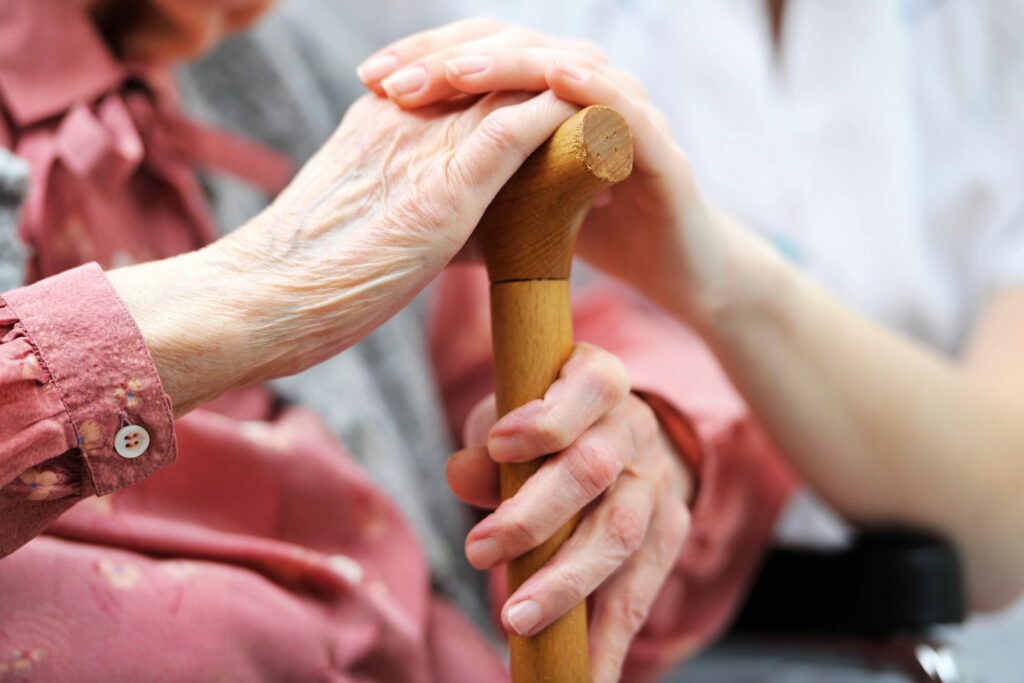Blog
Understanding Guardianship and Elder Rights

As people age, they often face increasing challenges with managing their affairs, from finances to healthcare decisions. In some cases, cognitive or physical decline may prevent an elder from making decisions in their best interest. Guardianship becomes a critical legal tool in such situations, allowing a trusted individual to make these decisions on behalf of the elder. However, this process must be approached with care, respect, and an understanding of the elder’s rights. At P&P Law Firm, we understand elder guardianship’s complexities and aim to guide families through this sensitive legal matter.
Understanding Elder Guardianship
Elder guardianship is a legal process in which a court appoints an individual (the guardian) to make decisions on behalf of an elderly person (the ward) who can no longer do so for themselves due to incapacity. The appointed guardian takes on significant responsibility, including making decisions related to healthcare, finances, living arrangements, and more. This process is designed to protect the elderly’s well-being, but it is also essential to respect their rights.
Legal Basis for Elder Guardianship
The legal basis for elder guardianship varies by state but generally stems from protecting individuals who can no longer defend themselves. Guardianship is considered a last resort, typically initiated only when other forms of assistance, such as power of attorney, are insufficient or no longer applicable. Courts require substantial proof that the elder cannot manage their personal and financial affairs before appointing a guardian, as the process restricts the elder’s autonomy.
Types of Elder Guardianship
There are several types of guardianship, depending on the needs of the elder and the scope of authority granted to the guardian:
- Full Guardianship: The guardian has complete control over the elder’s personal, medical, and financial decisions.
- Limited Guardianship: The guardian is granted authority only over specific areas, such as healthcare or finances.
- Temporary or Emergency Guardianship: This is often appointed when an immediate decision is needed, but the guardianship is intended to be temporary.
- Co-Guardianship: In some cases, more than one person may be appointed as guardian, sharing the responsibilities.
The type of guardianship established will depend on the elder’s level of incapacity and the family’s specific needs.
Guardianship vs. Power of Attorney
Guardianship and power of attorney (POA) are often confused but serve different legal functions. A POA is a legal document that allows an individual (the principal) to designate another person (the agent) to make decisions on their behalf. POAs can be specific to healthcare or finances and remain effective if the elder is competent. On the other hand, Guardianship is imposed by a court when the elder is no longer capable of granting power of attorney or when the POA is insufficient. Unlike a POA, a guardian must regularly report to the court and may be subject to greater oversight.
Role of a Guardian
A guardian’s role is comprehensive and extends to all areas of the elder’s life, depending on the type of guardianship. Their primary responsibility is to act in the elder’s best interest. This may include:
- Manage financial assets and ensure bills are paid.
- Making healthcare decisions, such as approving or denying medical treatments.
- Determining appropriate living arrangements, whether at home, with family, or in a care facility.
- Advocating for the elderly’s well-being and preserving their rights and dignity.
How to Establish Guardianship
Establishing guardianship begins with filing a petition in the local court. The petitioner, often a family member, must present evidence demonstrating the elder’s incapacity. This typically includes medical reports and testimony from healthcare professionals. The court will also assess whether guardianship is necessary or if there are less restrictive alternatives. A hearing is held, during which the elder has the right to legal representation, and interested parties may present their case. If the court agrees that guardianship is needed, it will appoint a guardian and outline their responsibilities.
Monitoring and Oversight of Guardians
Guardianships are subject to regular court oversight to prevent abuse or neglect. Guardians must submit detailed reports; in some cases, the court may appoint a third-party investigator to evaluate the situation. Families and concerned parties can also request additional oversight if they suspect the guardian is not acting in the elder’s best interest.
Challenging a Guardianship
Guardianship can be contested by the elder, family members, or other interested parties. This may occur if the elder believes they can manage their affairs or if there is evidence that the guardian is not fulfilling their duties. In such cases, the court will re-evaluate the need for guardianship and may modify or revoke the arrangement if appropriate.
Revoking or Modifying Guardianship
Guardianship is not necessarily permanent. If the elder’s condition improves or circumstances change, the court may modify or revoke guardianship. Similarly, if the guardian can no longer fulfill their duties, the court may appoint a new guardian or terminate the guardianship altogether.
Elder Guardianship Laws by State
Each state has its laws governing guardianship, and it is crucial to understand the specific requirements in your jurisdiction. While the basic principles are similar, states differ in how they define incapacity, the court procedures for appointing guardians, and the level of oversight required. At P&P Law Firm, we assist families in navigating these state-specific laws to ensure compliance and protection of the elder’s rights.
How P&P Law Firm Can Help
Elder guardianship is a critical tool for protecting vulnerable seniors but must be handled with care and respect. At P&P Law Firm, we stand by families every step of the way, providing compassionate and experienced legal assistance to ensure that both the elder and their guardian receive the support and protection they need. Contact us today for a free case review and consultation.

